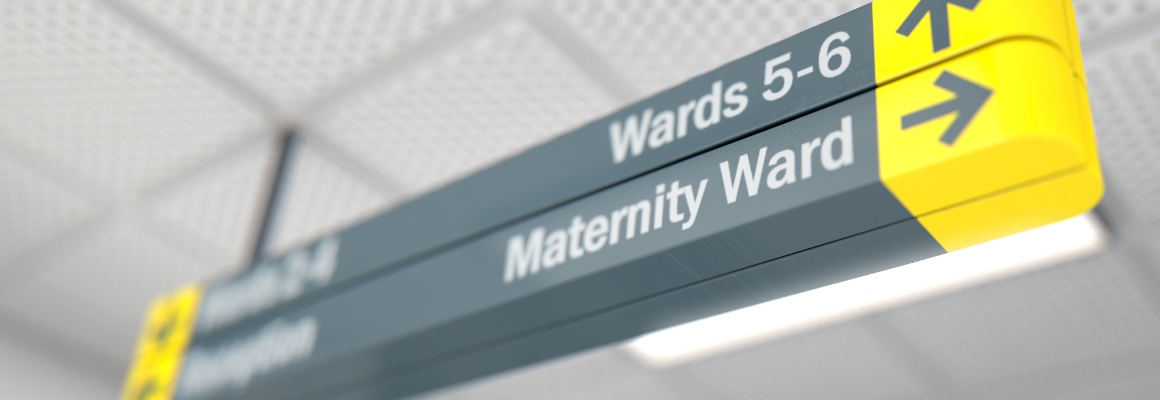Record Level Of Claims Against The NHS
Medical negligence claims against NHS maternity wards have reached record levels: 1,392 last year – a 37.41% increase in three years.
At least half (53%) of all maternity wards in England are rated ‘inadequate’ or ‘requires improvement’ on the Care Quality Commission’s four-band scale. Care levels have dropped over the last five years, warn regulators.
The NHS’s Failure To Learn Lessons From Past Errors
Midwives are still failing to learn vital lessons, warns the Nursing and Midwifery Council (NMC). It points to cases referred to regulators: the same themes keep recurring:
- failure to act swiftly enough in emergencies
- failure to identify key indications of danger to a baby
- failure to escalate when a baby’s heart rate dropped
- failure to recognise or interpret abnormal heart rates in a foetus
- failure to recognise or interpret abnormal uterine contractions.
And as a result, more injuries are occurring and more parents are taking legal action against the NHS.
Maternity Ward Failures In Shrewsbury And East Kent
The figures are damning – last year’s inquiry into failures at Shrewsbury and Telford revealed that 201 babies and nine mothers might have survived, had it not been for tragic errors over four decades.
At East Kent Hospitals University NHS Foundation Trust, an independent review showed that 45 babies could have been saved but for serious and repeated failings.
The government claims that the NHS is one of the safest places in the world to give birth, citing a drop in the number of stillbirths and neonatal deaths.
But that rings hollow when you are confronted with what has happened in some parts of the country. And how it could and should have been avoided if only lessons had been learned.
As clinical negligence solicitors, we know all too well that the NHS does not learn from its failures. We see the same types of injury over and over again.
And the fact that the NHS has set aside £70 billion for future medical negligence claims speaks volumes.
Tragic Human Cost Of Birth Injuries
Every parent knows the reality; as a mother or father, you feel for every childhood tragedy you hear or read about on the news.
That someone has been injured in a hospital of all places is bad enough. That the injury has happened to a newborn baby – the most innocent and most vulnerable form of human life – is appalling and tragic beyond comprehension.
Babies seriously injured at birth may need round the clock care for the rest of their lives. So parents are faced with the prospect of having to claim compensation to fund that care.
Nobody wants to sue the NHS. But when it closes ranks and refuses to admit its mistakes – often in the face of overwhelming evidence to the contrary – the parents are left with no other choice.
They want answers, justice, an apology and an assurance that it will never happen again. And they need to know there will be sufficient resources to fund the care of their poor injured baby for the rest of his or her life.
Find out more about taking legal action.
Birth Injuries To Babies
- Cerebral Palsy – a group of permanent movement disorders caused by brain damage. Cerebral Palsy can be caused by oxygen deprivation during birth or by other complications. The severity ranges from mild impairments to severe physical and cognitive disabilities.
- Hypoxic-Ischemic Encephalopathy (HIE) – this occurs due to oxygen deprivation and reduced blood flow to the baby’s brain. It can lead to brain damage and neurological injuries. Mild cases can cause minimal impairment but severe cases can result in profound intellectual and developmental disabilities. Consequences may include cognitive problems, epilepsy and physical impairments.
- Perinatal Asphyxia – oxygen deprivation before, during, or after birth can result in perinatal asphyxia. The severity ranges from mild to severe, with potential consequences including developmental delays, cognitive impairment and movement difficulties.
- Intracranial haemorrhage – bleeding inside the baby’s brain due to trauma during the birth. The severity depends on the extent of bleeding and location. Severe cases can lead to brain damage, developmental delays, seizures and other neurological issues.
- Brachial plexus injuries – these involve damage to the bundle of nerves controlling the arm and hand muscles. The severity can vary widely, from mild stretching that heals on its own to severe nerve tearing, causing significant weakness or paralysis. Consequences may include restricted limb movement, muscle atrophy and potential long-term impairment.
- Erb’s Palsy is a type of brachial plexus injury. It involves damage to the upper nerves controlling the arm. This can cause weakness or paralysis in the affected arm, with potential long-term limitations in functionality.
- Fractures – especially to collarbones, can occur during difficult deliveries. While most heal with proper care, they can lead to pain, limited movement and potential complications such as nerve damage.
- Facial nerve injuries – pressure during birth can cause nerve damage, leading to facial paralysis. The severity varies, with some babies recovering fully and other cases resulting in permanent facial asymmetry and impairments.
Shoulder Dystocia
Shoulder dystocia is a childbirth complication that occurs when the baby’s head has been delivered but one of the baby’s shoulders becomes stuck behind the mother’s pelvic bone during the birth process.
This can delay the delivery of the baby’s body. Shoulder dystocia is considered an obstetrical emergency because it can lead to various complications for both the baby and the mother.
Shoulder dystocia can have serious consequences, including brachial plexus injuries, fractures, HIE, uterine rupture/tears, and emotional and psychological distress.
Birth Injuries To Mothers
Mothers can also experience various types of injuries during childbirth, although they are generally less common than birth injuries to babies.
The severity and consequences of these injuries can vary widely based on individual circumstances.
Injuries can include perineal tears, episiotomy complications, pelvic organ prolapse, uterine rupture, excessive bleeding, infections, nerve damage and the psychological impact.
Psychological injuries should not be underestimated. One-in-five mothers experiences mental health issues during pregnancy or after the birth of their child.
Further Reading
- Kidney Disease Sufferer Gains £85,000 Compensation. Read more…
Get Expert Legal Advice On Medical Negligence
Coles Miller’s medical negligence solicitors can advise you on how to embark on a medical negligence claim. We handle all claims on a No Win No Fee basis.
For more information, contact Coles Miller Partner David Simpson, Head of our Medical Negligence team.
His specialisms include ectopic pregnancies and mismanaged labour involving injuries to babies and mothers. David is based at our Poole head office.


.png)



.webp)

